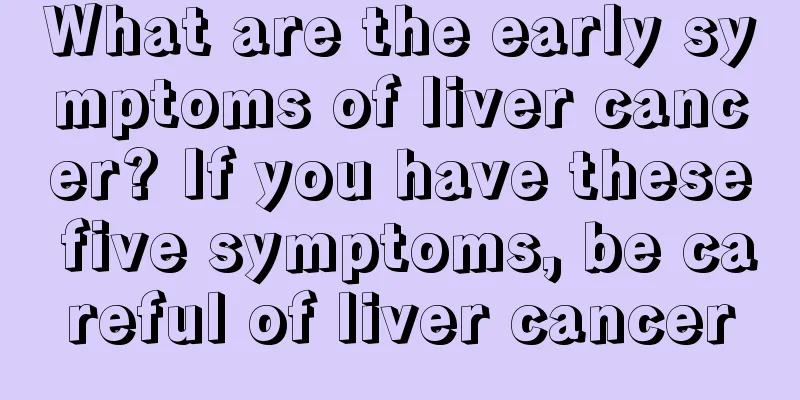Itchy skin with red spots

|
If your skin is itchy and has red spots, this is probably due to allergic dermatitis. The impact of allergic dermatitis on the patient's skin health cannot be ignored. If this disease is not treated well, the long-term existence of this phenomenon will seriously affect the patient's mental state. Here are some treatments for allergic dermatitis! 1. Find the cause of allergies Take a detailed medical history and carefully inquire about the environment related to the onset of the disease, the type, quantity, physical and chemical properties of the substances contacted, the length of contact time, the method of contact, whether there have been similar rashes in the past, etc. Analyze which substances may be related from the medical history to provide a basis for skin patch testing. Once the cause of the allergy is found, try to avoid further exposure. Irritants or toxic substances remaining on the skin should be rinsed off as quickly as possible. Clean water, saline or light soapy water can be used for rinsing. If the contact object is a strong acid, it can be rinsed with a weak alkaline liquid (such as soda water); if it is a strong alkaline substance, it can be rinsed with a weak acidic liquid (such as boric acid solution). 2. Avoid stimulation If clinical symptoms occur, local irritation should be minimized. Avoid scratching, do not wash with hot water, and avoid strong sunlight or hot air stimulation. 3. Systemic treatment Oral antihistamines, such as cyproheptadine, diphenhydramine, chlorpheniramine, acrivastine, cetirizine, mizolastine, ebastine, desloratadine, etc.; large doses of vitamin C taken orally or intravenously; 10% calcium gluconate injection, intravenous push. If the area is extensive and the erosion and exudation are severe, glucocorticoids can be given. Such as oral prednisone, triamcinolone or dexamethasone; intramuscular injection of Diprosone. For severe cases, hydrocortisone or dexamethasone can be given intravenously first, and then maintained orally after the symptoms are alleviated. If contact dermatitis is accompanied by local infection, such as lymphangitis, lymphadenitis, and soft tissue inflammation, antibiotics can be used. For mild cases, erythromycin, penicillin V potassium, cephalexin, or sulfonamides can be taken orally; for severe cases, penicillin, cephalosporin, or quinolone antibiotics can be given intravenously. |
>>: What to do if you are short of breath
Recommend
Does rib fracture hurt? Here’s what you need to know
Fractures are obviously painful for many people, ...
What are the benefits of drinking Pueraria lobata flower soaked in water
It is convenient and simple to soak Pueraria flow...
Why is there residue on lipstick
The color of a person's lips can reflect his ...
The efficacy of jade bracelet
Jade is a relatively precious jewelry and many wo...
I feel weak all over when I'm hungry
It is normal to feel weak when you are hungry, bu...
What ointment is good for removing abrasion scars?
There are many drugs that can reduce scars. Gener...
Closed comedones on forehead and cheeks
Sometimes people will feel that a certain amount ...
Rapeseed stewed with vermicelli
There is a famous dish in Northeast China called ...
How many years of life does glioma last?
Glioma is a brain disease that affects human heal...
The benefits of foot soaking all year round
There are many benefits to soaking your feet all ...
Can quitting smoking help you gain weight?
Many people believe that quitting smoking can hel...
How to treat auditory hallucination effectively?
Speaking of symptoms such as auditory hallucinati...
How is pelvic floor muscle spasm syndrome treated?
If you experience difficulty in defecation, infre...
Blood test for three stomach items
Some patients have poor gastrointestinal function...
Is aplastic anemia leukemia? It turns out to be like this
Is aplastic anemia leukemia? This problem has alw...









